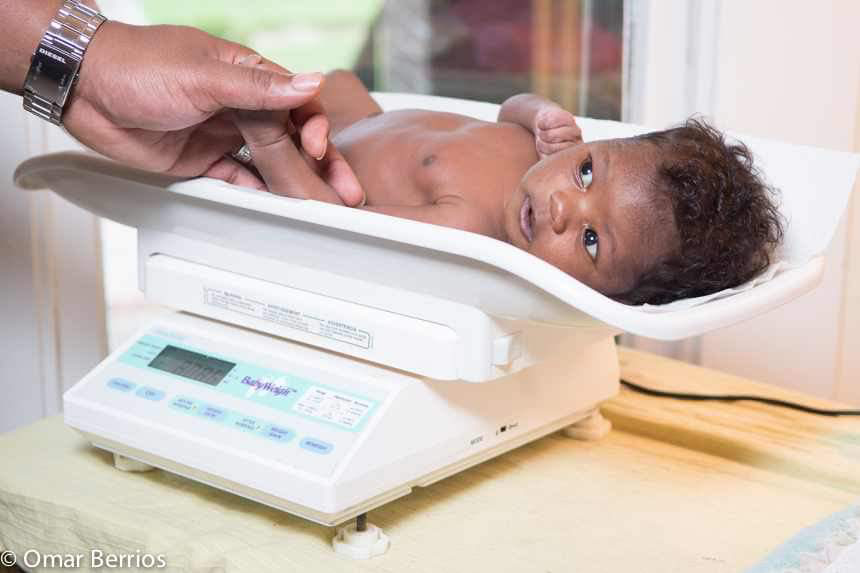Feeding Emergencies
Sometimes breastfeeding doesn’t go as planned and without parents realizing it, their newborns experiencing a feeding-crisis. Decisions made during times like this should always lean toward getting a baby fed and preventing dehydration, with the eventual goal of working toward restoring breastfeeding-which is very possible.
If you have zero doubt that your baby is indeed experiencing a feeding emergency, and if you cannot see your baby’s doctor ASAP, please go to your nearest pediatric emergency room so that your baby can be assessed for dehydration (and treated, if necessary) and receive stabilizing nutrition. If you have questions about whether your baby needs to be seen, call your baby’s doctor ASAP, even if it’s overnight.
Why are feeding-emergencies happening more now?
As new parents are getting more and more advice from people who believe that all mothers are able to produce enough milk for their babies (some cannot, and that doesn’t mean they can’t breastfeed at all), or as parents are receiving encouragement from their communities not to use a pediatric provider to follow their baby’s early care (usually for fear of over-medicalization), more and more families are seeing their newborns in crisis as they realize that breastfeeding isn’t going as expected (pediatricians see breastfed families in frequent intervals that include weight checks-which is the ultimate way to know how feeding is going) and didn’t catch it on time.
While the formula-shortage is indeed creating adrenaline and pressure surrounding having to breastfeed exclusively, the messaging parents receive from people insisting that breastfeeding always works perfectly, or that medical providers shouldn’t be used for fear of “over-medicalization” has been around for years, and for years feeding-crises have occurred as a direct-result of this.
Laura’s note:
As a lactation consultant who has had to help mitigate many very serious feeding-crises, nothing breaks my heart more than to see families who have been influenced away from seeking proper early care for their babies due to the polarization and stigmatization of certain healthcare topics, from the thought that all doctors are overly medical, to the the thought the the breast is always the right feeding method, my hope for all new parents and all who support them is that they can deconstruct “edicts” about feeding methods before the “rules” cause issues.
For parents needing wisdom on how to choose a doctor for their baby (including one that matches your family’s health values) please read this link…but don’t read it until after you’ve sought immediate care for your baby if you feel your baby is experiencing a feeding-emergency.
Better understanding a feeding-emergency in a newborn
Again, if have zero doubt that your baby is indeed experiencing a feeding emergency and cannot see your baby’s pediatrician immediately, please go to your nearest pediatric emergency room so that your baby can be assessed for dehydration (and treated, if necessary) and receive stabilizing nutrition. If you have questions about whether your baby needs to be seen, call your baby’s doctor ASAP, even if it’s overnight.
A feeding-emergency means that your baby is at risk of dehydration from not receiving the nutrition they need from the breast or bottle. Dehydration makes a baby lethargic and inefficient at feeding, and can quickly cause dangerous electrolyte imbalances.
You can know if your baby has crossed over into an emergent situation if they are not meeting their output goals (not peeing and pooping enough for their day of life-see below).
If your intention is to breastfeed yet the amount your baby is getting is in question, please feed your baby a bottle of breast milk or formula and if you cannot secure either feeding method, please call your baby’s doctor or visit an ER since hospitals can provide formula, which can be life-saving during a feeding emergency.
The fear of “nipple confusion” and the use of the other methods to feed
Many parents fear that offering a bottle will create confusion but in the rare chance it does, the “risk” of providing a guaranteed feeding method until milk-transfer at the breast is confirmed still very much outweighs the risk to your baby’s immediate thrive. With support, flow-preference between the breast and bottle can be reversed.
Some parents, out of fear that a bottle will confuse their baby, will drop milk into their babies mouth or use a syringe but know that babies need to suck on something in order for the swallow to coordinate and prevent milk from going down the wrong way. While using finger-feeding is good for the first few days, as a baby’s volume-needs increase, getting baby enough nutrition via finger-feeding becomes ineffective because it takes a long time. To get baby needed-calories efficiently, it is ok to give a bottle when the need outweighs the risk.
Signs that your exclusively-breastfed baby isn’t or hasn’t been getting milk from your breast
• isn’t meeting their immediate output goals, which are:
First 24 hrs since birth should yield 1 pee & 1 poop
Second 24 hrs of life should yield 2 pees/2 poops
Third 24hrs of life should yield 3 pees/3 poops
Fourth 24 hrs of life should yield 4 pees/pooping frequency will be variable
Fifth 24 hrs of life until baby’s much older should yield at least 5 heavy wet diapers. pooping frequency will be variable.
• sounds raspy or dry when crying; back of tongue seems to stick to back of tongue when crying
• eyes, lips and skin look dry (opaque vs supple)
• is lethargic/not rousing to feed
• you don't see or hear deep swallows
• your baby’s posture remains stressed the whole feed, or they go limp/falls asleep/gets floppy-postured within a few minutes at the breast without you having heard deep swallows
First 24 hrs since birth should yield 1 pee & 1 poop
Second 24 hrs of life should yield 2 pees/2 poops
Third 24hrs of life should yield 3 pees/3 poops
Fourth 24 hrs of life should yield 4 pees/pooping frequency will be variable
Fifth 24 hrs of life until baby’s much older should yield at least 5 heavy wet diapers. pooping frequency will be variable.
• sounds raspy or dry when crying; back of tongue seems to stick to back of tongue when crying
• eyes, lips and skin look dry (opaque vs supple)
• is lethargic/not rousing to feed
• you don't see or hear deep swallows
• your baby’s posture remains stressed the whole feed, or they go limp/falls asleep/gets floppy-postured within a few minutes at the breast without you having heard deep swallows
Signs in mom/breastfeeding parent that milk production or milk-transfer may be low
• injured nipples (sometimes, not always)
• breasts that didn’t “wake-up” (feel tender, change in areola color or size) during pregnancy or during the first few after birth.
• low output when pumping (this has to be taken in context since some people don’t pump as much as a healthy baby is able to transfer…keep in mind that a baby who is losing weight or is dehydrated will likely not take as much from the pump and this can power-down milk production.
• a gut-feeling…these are ok to honor without thinking that maybe you’re “anxious” or “overthinking” because the worst thing that can happen when you follow your gut, is that baby gets assessed and you’re told that they’re ok…
All of these issues can be troubleshot by a lactation consultant* once baby is stabilized. Having these issues does not mean breastfeeding is over.
*Not all lactation consultants work with babies after the first week of life for issues like eventual weight-gain or milk supply. Make sure to see an “outpatient” lactation consultant at your birthing hospital or in private practice who is experienced in all seasons of breastfeeding so they can support you with your future goals in mind.
• breasts that didn’t “wake-up” (feel tender, change in areola color or size) during pregnancy or during the first few after birth.
• low output when pumping (this has to be taken in context since some people don’t pump as much as a healthy baby is able to transfer…keep in mind that a baby who is losing weight or is dehydrated will likely not take as much from the pump and this can power-down milk production.
• a gut-feeling…these are ok to honor without thinking that maybe you’re “anxious” or “overthinking” because the worst thing that can happen when you follow your gut, is that baby gets assessed and you’re told that they’re ok…
All of these issues can be troubleshot by a lactation consultant* once baby is stabilized. Having these issues does not mean breastfeeding is over.
*Not all lactation consultants work with babies after the first week of life for issues like eventual weight-gain or milk supply. Make sure to see an “outpatient” lactation consultant at your birthing hospital or in private practice who is experienced in all seasons of breastfeeding so they can support you with your future goals in mind.


